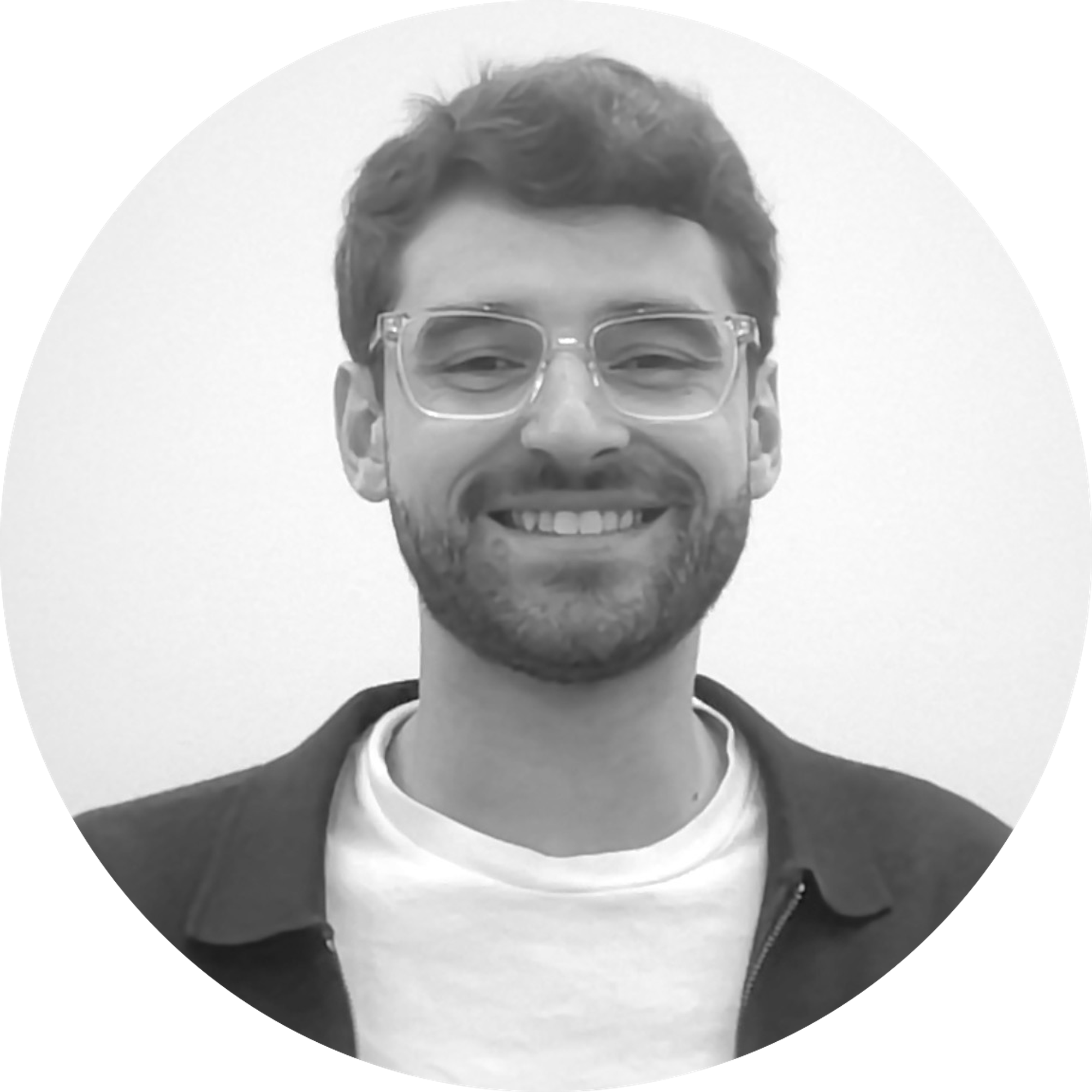VARIANT EFFECTS SEMINAR SERIES (VESS)
In this series, early-career scientists from around the globe share and discuss their research related to interpreting human genetic variation.
EVENT DETAILS
Seminars are held on the 1st Tuesday each month from 9-10am Pacific (4-5pm UTC) timezone converter
Anna Axakova
Pronouns: She/Her
The Roth Lab, University of Toronto
Presentation Date: May 7th 2024 (1st speaker)
Systematically and proactively testing variant effects for the autoimmune regulator gene
Anna Axakova is a Molecular Genetics PhD candidate at the University of Toronto.
Gonzalo Parra
Pronouns: He/Him
Barcelona Supercomputing Center
Presentation Date: May 7th 2024 (2nd speaker)
Local Energetic Frustration Through Time and Species
Gonzalo Parra is an Argentine scientist who got a Bioinformatics degree from Universidad Nacional de Entre Rios followed by a Ph.D. from Buenos Aires University in Argentina. He was an EMBO postdoctoral researcher in the group of Dr. Johannes Soeding at the Max Planck Institute for Biophysical Chemistry in Goettingen, Germany. Then moved to work as a postdoctoral researcher in the group of Prof. Oliver Stegle at the European Molecular Biology Laboratory and the German Cancer Research Center in Germany. Since 2021, Gonzalo works at the Barcelona Supercomputing Center where he tries to understand the molecular mechanisms behind protein evolution, stability, function and dynamics both in healthy conditions as in disease. In addition, Gonzalo participates in multiple international forums to make science a more equal, diverse and inclusive environment. Gonzalo is currently a member of the International Society for Computational Biology (ISCB) Board of Directors, he is one of the co-chairs of the ISCB 3DSig COSI, a member of the ISCB EDI committee, a steering committee member of the 3DBioinfo Elixir community, a member of the advisory board of the Bioinfo4Women programme and a Working Group lead within the Machine Learning for Non
Globular Proteins COST action.
Max Staller
Pronouns: He/Him
Staller Lab, University of California, Berkeley
Presentation Date: June 4th 2024 (2nd speaker)
Evolution of transcriptional activation domains
Max’s lab experience began with Sean Connolly and Jorge Benach at Stony Brook University. Max graduated from Princeton University with a major in Molecular Biology and a minor in Quantitative and Computational Biology, completing a senior thesis with David Botstein. Max completed graduate studies in the Systems Biology program at Harvard University, where he worked with Angela DePace. Max pursued his postdoctoral work at Washington University in St. Louis working with Barak Cohen and Rohit Pappu. Outside of lab, Max enjoys hiking, skiing and cooking.
Social: @maxvstaller
Matthew Durrant
Patrick Hsu Lab, Arc Institute
Presentation Date: July 2nd 2024 (1st speakers)
Bridge RNAs direct programmable recombination of target and donor DNA
Matt Durrant received his PhD from Stanford University in 2020, working in the labs of Ami Bhatt and Stephen Montgomery on computationally characterizing mobile genetic elements. He continued on to a short postdoc in the lab of Patrick Hsu at UC Berkeley, where he discovered and characterized new large serine recombinases (LSRs) that could efficiently integrate DNA cargos into the genomes of human cells. He then transitioned to a senior scientist position in the Hsu Lab at the Arc Institute, where he continues his work with a focus on programmable recombinases and genome design.
Social: @mgdurrant
Nicholas Perry
Nicholas Perry is a current PhD student in the UC Berkeley - UCSF Joint Bioengineering program. He is conducting his research in Patrick Hsu's Lab at the Arc Institute, focusing on discovery and characterization of programmable recombinases.
Social: @ntperry13
SEMINAR SERIES FAQs
-
1st Tuesday of each month (9am Pacific)
Start time is 9am, 12pm, 2am, 4pm (Pacific, Eastern, Australia East, UTC)
We have members and presenters from around the globe (multiple time zones)
Our inaugural seminar was Tuesday, September 7th, 2021
Our seminars are one hour long and are free and open to the public.
-
Early career scientists: Students, postdocs, and new faculty (<1 year in position)
If you are interested in presenting or would like to recommend someone, please fill out this online > SPEAKER NOMINATION FORM
-
One hour long virtual meetings (zoom)
Each month, two presenters discuss their work in 20-minute talks, followed by lively Q&A sessions.
Questions from the audience can be asked using chat or Q&A during the webinar
AVE members can also follow / continue conversations on our VESS AVE Slack Channel (#variant-effects-seminar-series)
-
Our meetings are over Zoom and anyone is welcome to attend.
We use the webinar format, but participants can ask the speaker questions using the chat or Q&A
-
Anyone can attend. However, if you are interested in becoming a member of the Alliance, please sign up > HERE
-
The Variant Effect Seminar Series Committee members are listed here https://www.varianteffect.org/vess-committee
-
If speakers consent, the recordings will be publicly available on our affiliate > CMAP YouTube channel
Speakers can also now link their VESS talks to bioRxiv preprints! For more information contact organizer Diego Calderon (dcal@uw.edu)
You can also find a list of previous speakers and talks > HERE
-
Here! > VESS ZOOM LINK
and here! > Add these events to your calendar.





